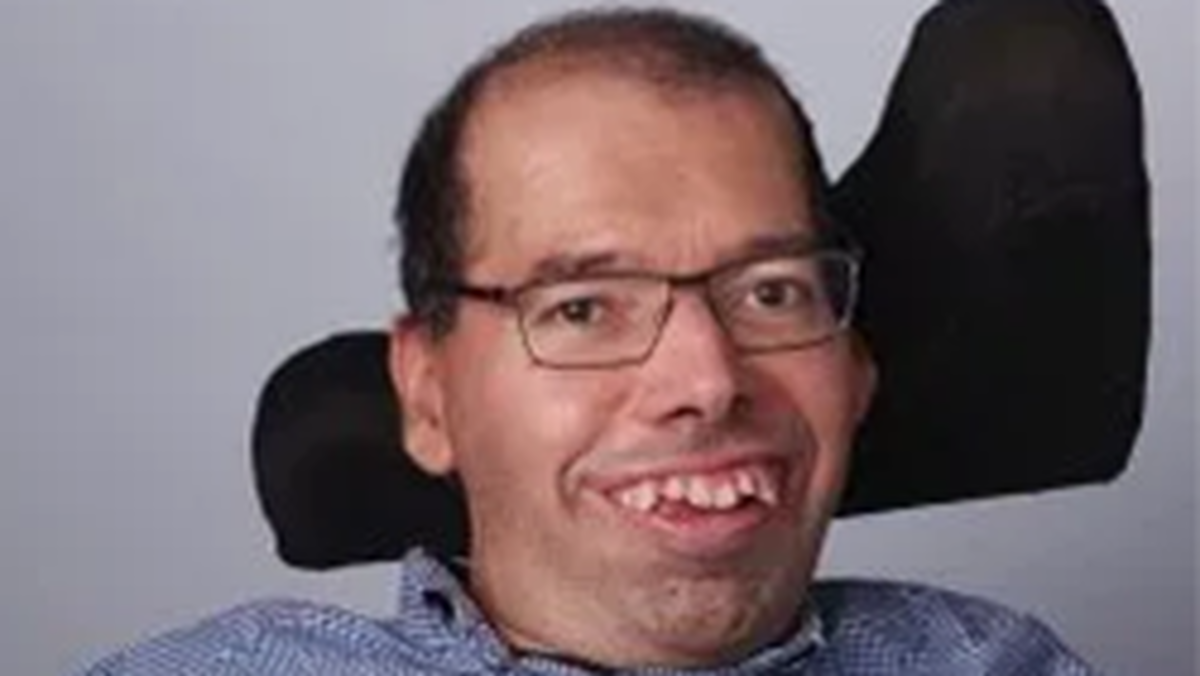Learning to be an advocate: George Taleporos
InLife board director Dr George Taleporos started speaking up for his own and others’ rights when he was just a child. A trusted voice, he was recently appointed to one of the most prominent disability advocacy positions in the state.
As a young boy George Taleporos remembers being stuck on a hot school bus in the middle of summer for about three hours every day.
There was no air conditioning and all the kids, who attended a special school in Melbourne, were tired, hungry and more than ready to get home at the end of the day.
To “make matters worse”, the bus driver would have long conversations with the parents at every drop-off.
“I think he got paid by the hour!” Taleporos says.
“I remember thinking that's not right, and I complained about the driver's behaviour on behalf of the rest of the students on the bus,” he says.
Taleporos’s early experience as a child of 1980s segregated education was just the start of a long journey and career standing up for the rights of people with disability.
“I have been an advocate for most of my life,” Taleporos says.
“I was about eight years old (at that time of the bus experience) - so technically that could be the first example of my disability advocacy,” he says.
At 18, he “officially” took on an advocacy role by joining his local disability advisory council, later being employed by them as well.
Today, Taleporos, who has a PhD in psychology, wears many hats from policy guru to academic and podcast host, but all of them have inclusivity and advocacy front and centre.
And Taleporos’s latest role is at the frontline when it comes to creating a more inclusive society.
He was recently appointed the new chair of the Victorian Disability Advisory Council.
“It’s a leadership role in the interests of disabled people,” Taleporos says.
“Council has a lot of work ahead with the new state disability plan and we look forward to this new chapter as we strive towards an accessible and inclusive community for all,’ he says.
Another recent move was joining the board of not-for-profit disability service provider InLife.
“InLife has a philosophy around outcomes for people with very high complex needs, something I am particularly interested in,” he says.
Taleporos said sometimes providers were not interested in providing support for high needs clients, instead chasing what he calls “low hanging fruit”.
“I really enjoy having the opportunity to influence how the organisation can deliver better outcomes for people with disability and better conditions for our support workers,” he says.
Having more people with disabilities on boards is an area where Taleporos is leading by example and wants to see change.
“I also want to see the National Disability Insurance Agency (NDIA) to have at least half its board members being people with disabilities,” he says.
An early supporter of the National Disability Insurance Scheme (NDIS), Taleporos was a vocal critic of the intrusive questioning that was part of the much maligned Independent Assessments trial.
He also encourages others with disability to speak up if there is a problem and learn as much as they can about the scheme and legislation.
“This will help you to advocate for yourself and to stand up to bureaucrats who sometimes make the wrong decisions,” he says.
“And when they make the right decisions always express gratitude, not only to make them feel good but also to remind yourself that the NDIS is something that many people, some of whom are no longer with us, worked incredibly hard for so people with disabilities could live a good life.”
Instead of Independent Assessments, Taleporos would like to see the introduction of self-assessments and personalised budgets “that put people in complete control of the supports and more importantly, our lives”.
Taleporos is watching the government closely to see what will happen next and has interviewed both NDIS minister Linda Reynolds and NIDIA CEO Martin Hoffmanon for his Reasonable and Necessary podcast for the Summer Foundation.
But he does remain largely positive about the scheme.
“I constantly remind myself of how lucky I am to live in a country with a NDIS, it might not be perfect but it certainly is making a huge difference to thousands of lives across the country including my own,” Taleporos says.
